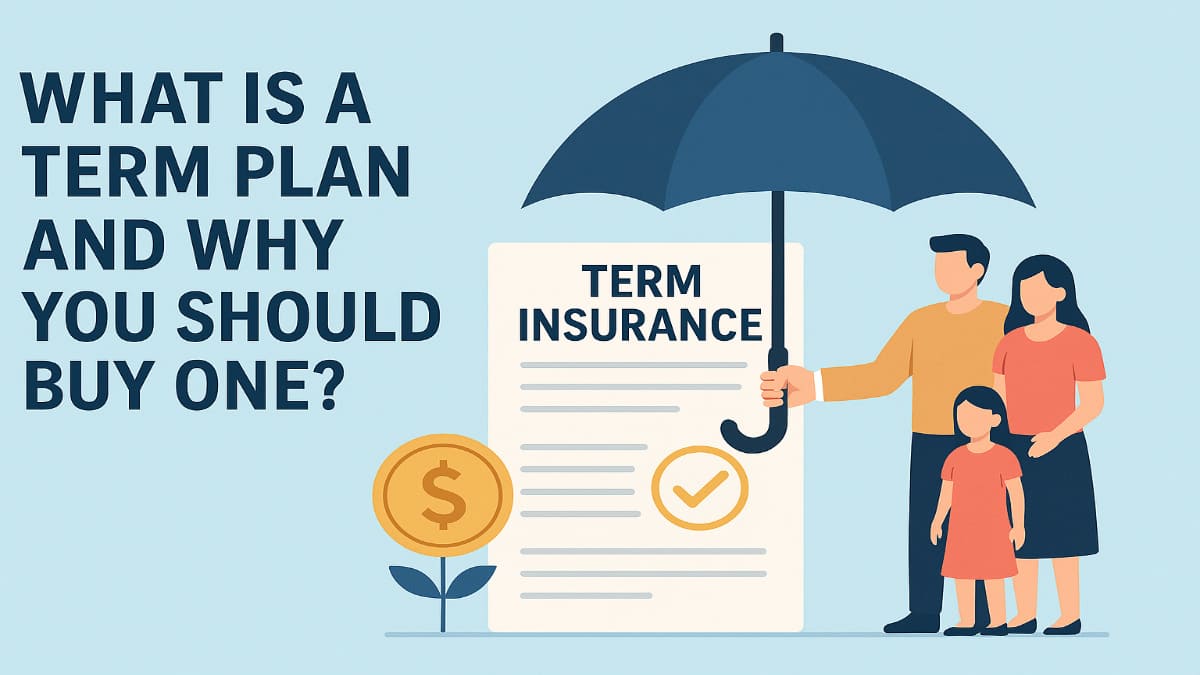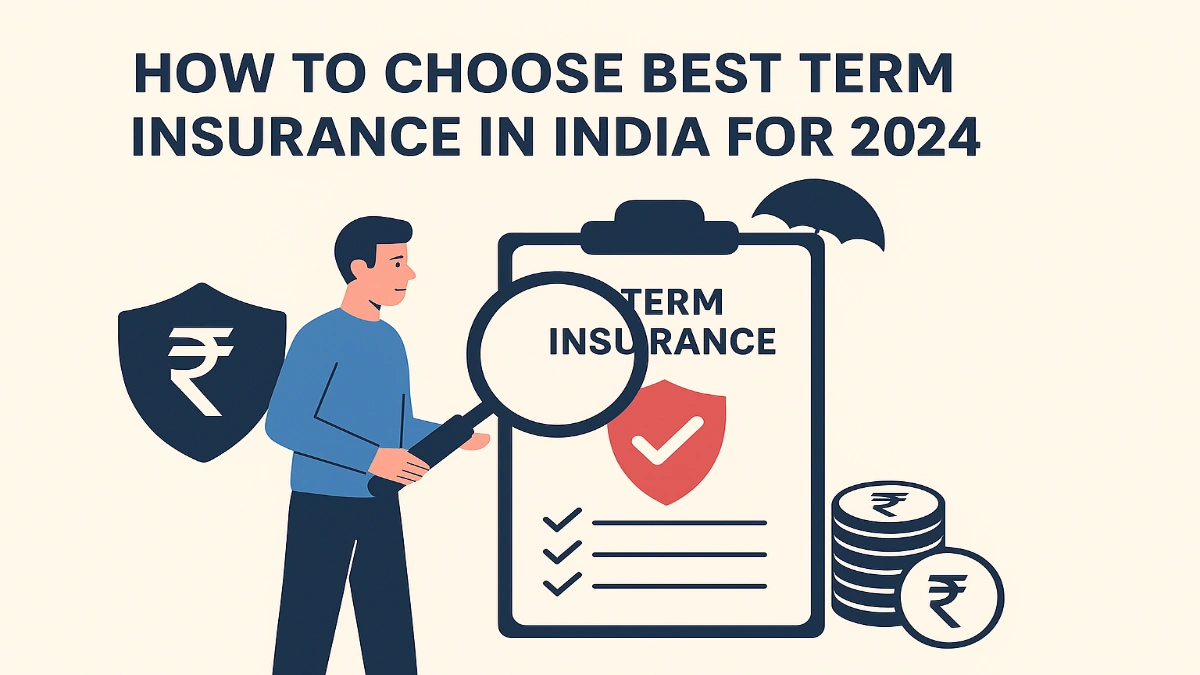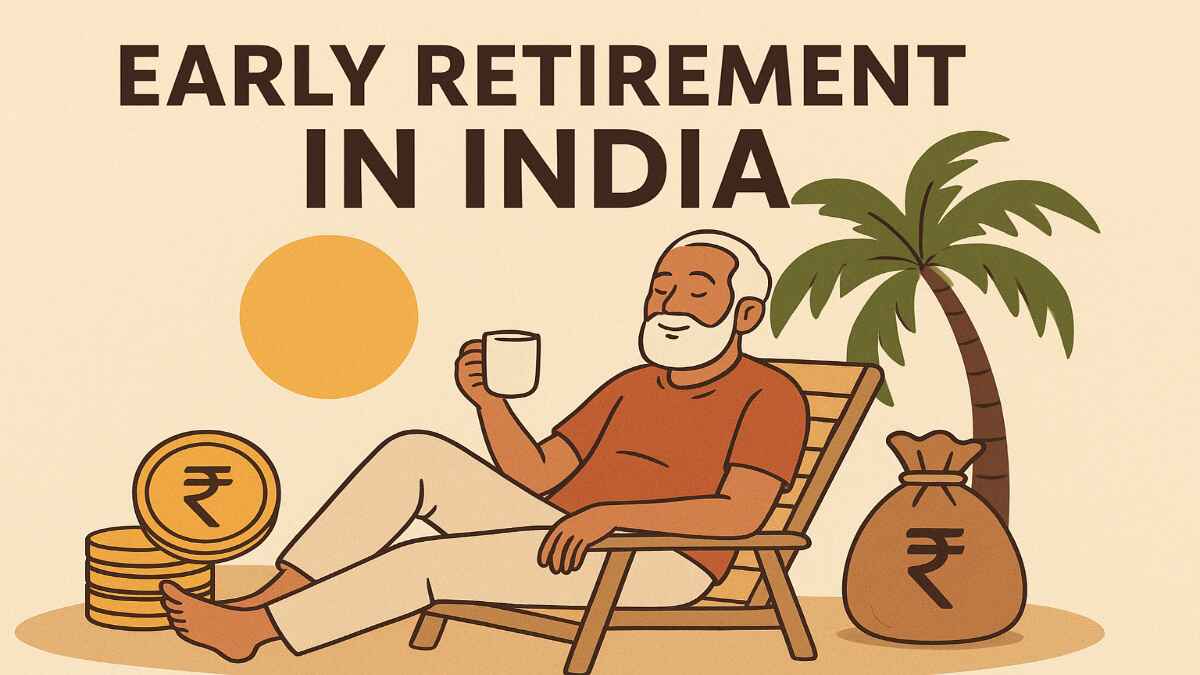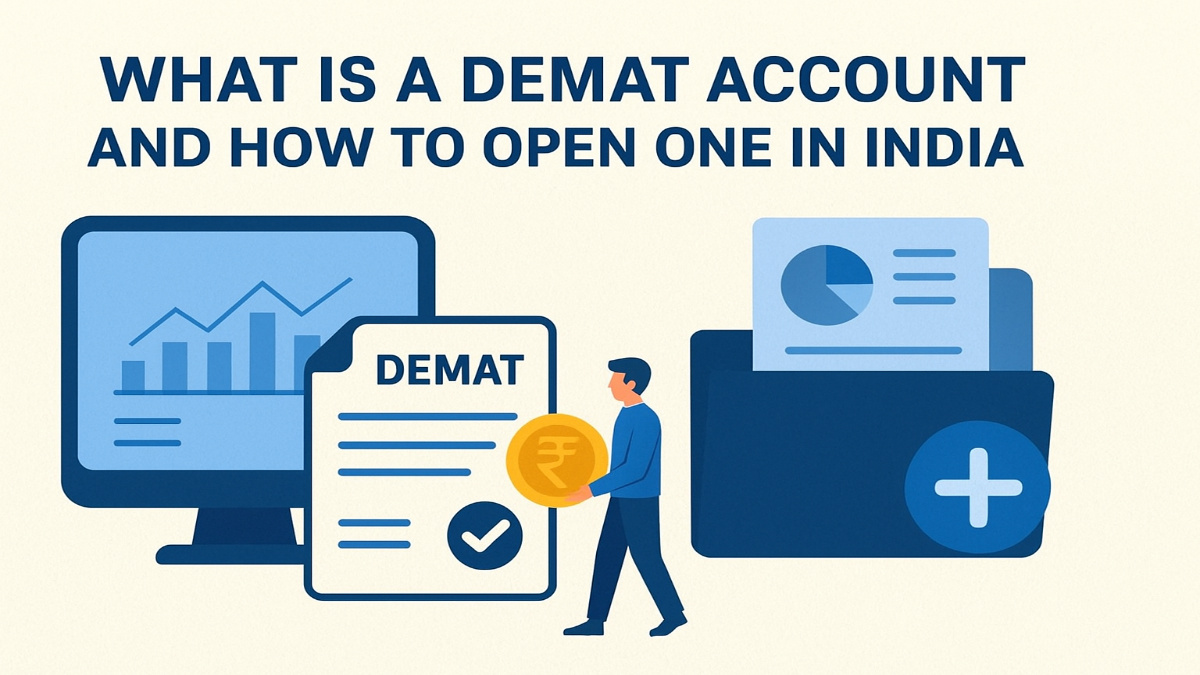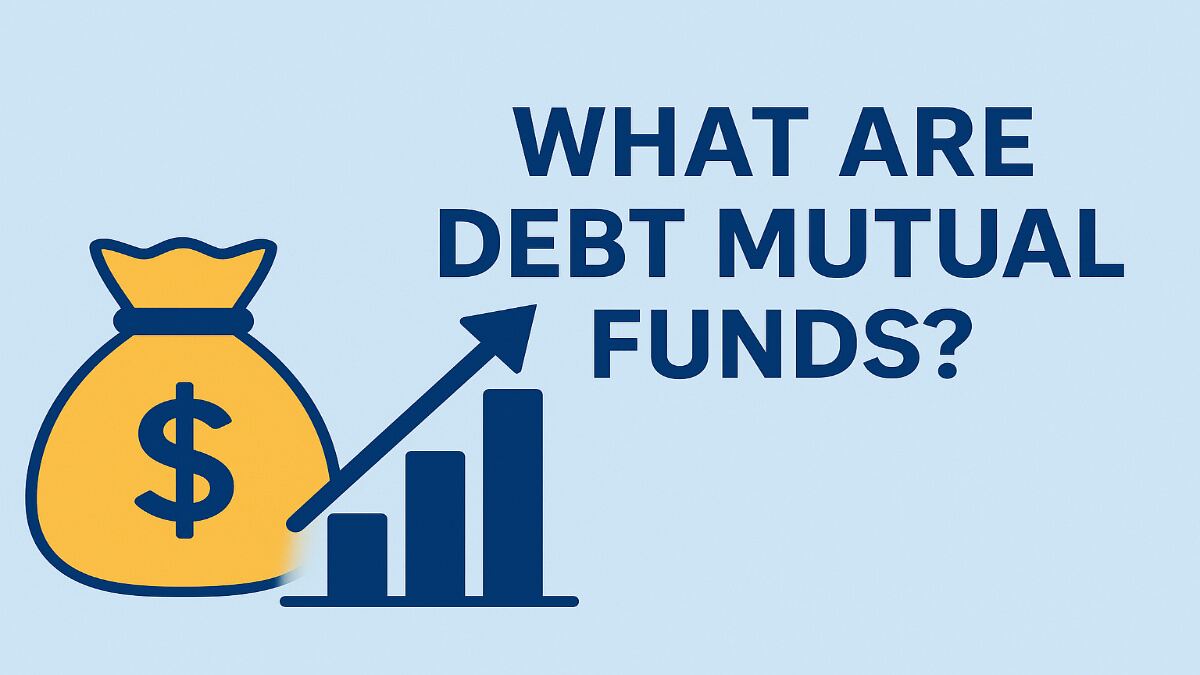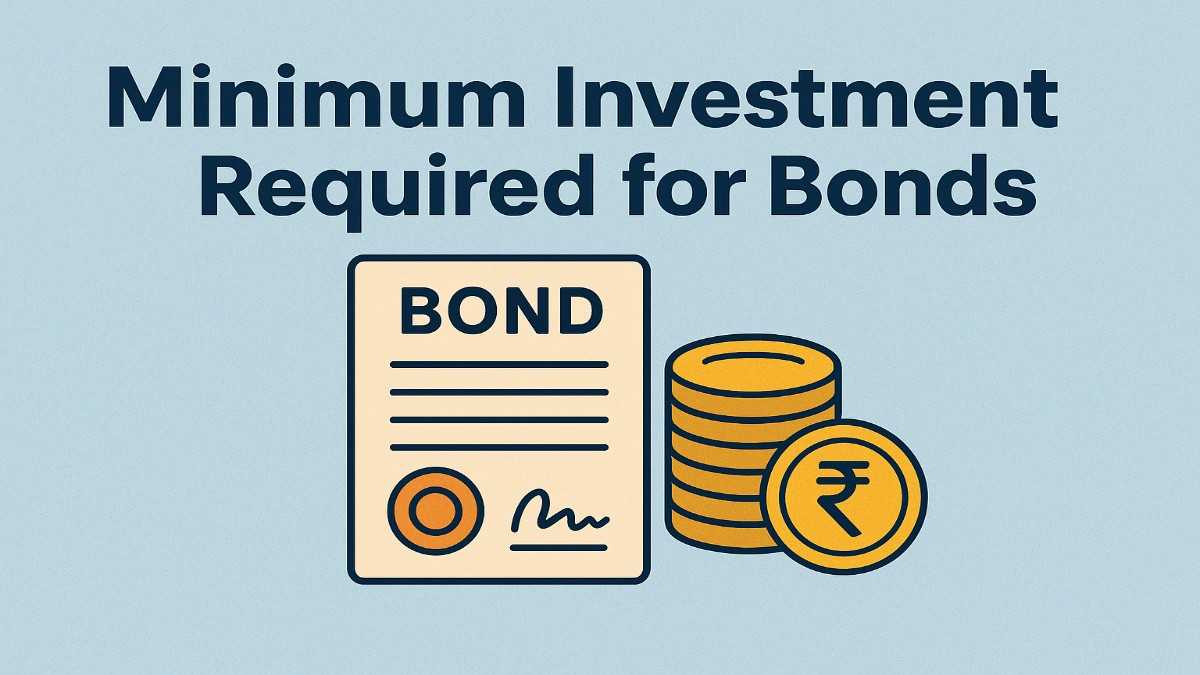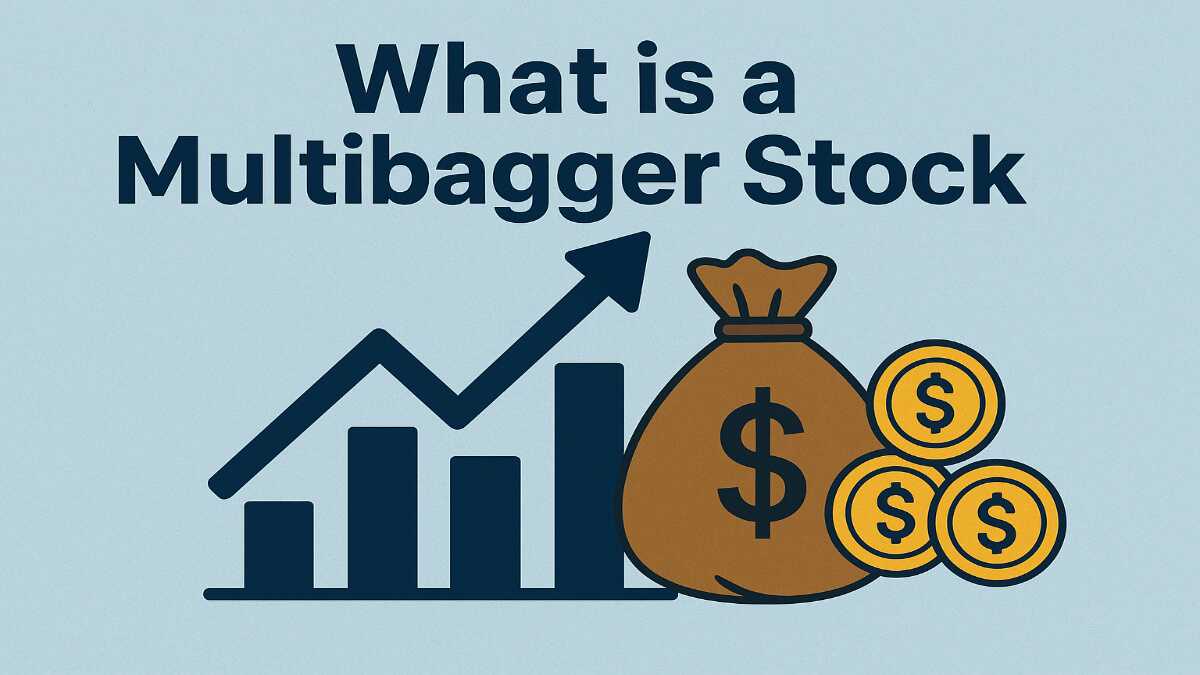In today’s fast-paced and unpredictable world, ensuring the financial security of your loved ones is more important than ever. What Is a Term Plan and Why You Should Buy One? A term plan, also known as term insurance, is a type of life insurance policy that provides financial protection to your family if you pass away during the policy term. Unlike other life insurance policies that come with investment or savings components, term plans are purely protection-oriented, offering high coverage at affordable premiums. In India, term insurance has become increasingly popular due to its simplicity, affordability, and the peace of mind it provides to policyholders.
This comprehensive guide will explore What Is a Term Plan and Why You Should Buy One? by delving into its definition, how it works, the different types available, and why it is essential for every Indian household. We will also discuss the latest trends in term insurance for 2025, how to choose the right plan, and address frequently asked questions to help you make an informed decision. By the end, you will understand why buying a term plan is one of the smartest financial decisions you can make.
Table of Contents
Understanding Term Insurance
What Is a Term Plan?
A term plan is a life insurance policy that provides a death benefit to your nominees (usually family members) if you die during the policy term. The policy term is the duration for which the insurance coverage is valid, typically ranging from 10 to 40 years. If you outlive the policy term, there is no payout, except in specific cases like return of premium plans, where your premiums are refunded.
What Is a Term Plan and Why You Should Buy One? Term plans are designed to be simple and cost-effective. They do not include any savings or investment components, which makes them significantly cheaper than other life insurance products like endowment plans or unit-linked insurance plans (ULIPs). For example, a healthy 25-year-old non-smoker can get a term insurance cover of Rs. 1 crore for just Rs. 616 per month until age 60, according to Policybazaar.
How Does Term Insurance Work?
When you purchase a term insurance plan, you agree to pay a fixed premium regularly (monthly, quarterly, annually, or as a lump sum) for the duration of the policy term. In return, the insurance company promises to pay a lump sum, known as the sum assured, to your nominees if you die during the policy term. If you survive the policy term, no payout is made, unless you have opted for a return of premium plan.
Example of How Term Insurance Works
- Scenario: You are a 30-year-old earning Rs. 10 lakhs per year and have a family dependent on your income.
- Term Plan Details: You buy a term plan with a sum assured of Rs. 1 crore for a policy term of 30 years.
- Premium: You pay a monthly premium of Rs. 500.
- Outcome:
- If you pass away during the 30-year term, your family receives Rs. 1 crore.
- If you survive the 30 years, no payout is made (unless you have a return of premium plan).
This payout can be used by your family to cover expenses like education, healthcare, daily living costs, or to pay off debts like home loans. What Is a Term Plan and Why You Should Buy One? It’s a financial safety net that ensures your family’s stability in your absence.
Key Features and Benefits
Term insurance plans come with several features that make them an attractive option for financial planning:
| Feature | Description |
|---|---|
| Pure Protection | Focuses solely on providing financial protection, with no investment component. |
| Affordable Premiums | Offers high coverage at low premiums, e.g., Rs. 16/day for Rs. 1 crore cover. |
| High Coverage | Provides substantial sum assured, often 10-15 times your annual income. |
| Flexibility | Allows customization of policy term, sum assured, and premium payment term. |
| Riders | Add-ons like critical illness or accidental death benefit enhance protection. |
| Tax Benefits | Premiums qualify for deductions under Section 80C; payouts are tax-free under Section 10(10D). |
What Is a Term Plan and Why You Should Buy One? These features make term insurance accessible and valuable for individuals across various income levels and life stages.
Types of Term Insurance Plans
There are several types of term insurance plans available in India, each designed to meet different financial needs. What Is a Term Plan and Why You Should Buy One? Understanding these types can help you choose the plan that best suits your requirements.
| Type | Description |
|---|---|
| Level Term Insurance | Fixed sum assured and premium throughout the policy term. Ideal for predictable coverage. |
| Increasing Term Insurance | Sum assured increases annually (e.g., 5-10%) to account for inflation. Suitable for growing financial needs. |
| Decreasing Term Insurance | Sum assured decreases over time, often used for reducing liabilities like home loans. |
| Convertible Term Insurance | Allows conversion to a whole life or endowment plan without medical tests. Useful for changing needs. |
| Return of Premium Term Insurance | Premiums are refunded if you survive the policy term. Provides added security. |
| Joint Life Term Insurance | Covers two individuals (e.g., you and your spouse) under one policy. Pays out on the first death. |
| Year Renewable Term Insurance | Renewed annually with increasing premiums as age increases. Suitable for short-term needs. |
What Is a Term Plan and Why You Should Buy One? Each type caters to specific financial goals, from covering loans to ensuring long-term family security. For example, a decreasing term plan is ideal for someone with a home loan, while an increasing term plan suits those anticipating rising expenses due to inflation.
Why You Should Buy a Term Plan
What Is a Term Plan and Why You Should Buy One? Buying a term plan is not just about securing your family’s financial future; it’s about ensuring peace of mind. Here are some compelling reasons why you should consider purchasing a term plan:
1. Financial Protection for Your Family
If you are the primary breadwinner, your family relies on your income for daily expenses, education, healthcare, and other needs. A term plan ensures that your family can maintain their lifestyle and meet their financial obligations even if you are no longer around. The lump sum payout can cover household expenses, children’s education, or even future goals like marriage.
2. Affordable Premiums
Term insurance offers high coverage at very low premiums. For example, a 30-year-old non-smoker can get a cover of Rs. 50 lakhs for just Rs. 300-400 per month, according to HDFC Life. This affordability makes it accessible to individuals from all income groups, ensuring that financial protection is within reach.
3. Tax Benefits
Premiums paid towards term insurance are eligible for deductions under Section 80C of the Income Tax Act, up to Rs. 1.5 lakhs per year. Additionally, the death benefit received by your nominees is tax-free under Section 10(10D). What Is a Term Plan and Why You Should Buy One? These tax benefits make term insurance a smart financial planning tool.
4. Flexibility in Coverage
Term plans offer flexibility in terms of sum assured, policy term, and premium payment term. You can also add riders to customize the plan according to your specific needs, such as critical illness cover or accidental death benefit. This ensures that your term plan aligns with your financial goals.
5. Protection Against Uncertainties
Life is unpredictable, and events like accidents, illnesses, or natural disasters can happen at any time. In India, road accidents claim 474 lives daily (The Times of India, 2023), and cancer caused 8,89,742 deaths in 2022 (Global Cancer Observatory). A term plan acts as a financial safety net, ensuring your family is not left in financial distress. What Is a Term Plan and Why You Should Buy One? It provides security against life’s uncertainties.
6. Debt Coverage
If you have loans like a home loan or car loan, a term plan can ensure that your family is not burdened with repayments in your absence. For example, if you have a Rs. 50 lakh home loan, a term plan with at least that sum assured can cover the outstanding amount.
7. Peace of Mind
Knowing that your family is financially secure gives you the confidence to focus on your goals without worrying about their future. What Is a Term Plan and Why You Should Buy One? A term plan is a promise to your loved ones that they will be taken care of, no matter what.
How to Choose the Right Term Plan
Choosing the right term plan involves considering several factors to ensure it meets your financial needs and provides adequate protection. What Is a Term Plan and Why You Should Buy One? Here’s a step-by-step guide to help you make an informed decision:
1. Evaluate Your Financial Needs
Calculate the amount of coverage you need based on your family’s expenses and financial obligations. A common thumb rule is to have a sum assured of 10-15 times your annual income. For example, if you earn Rs. 10 lakhs per year, aim for a sum assured of Rs. 1-1.5 crore. Consider expenses like:
- Daily living costs (e.g., Rs. 35,000/month, which could double in 10 years due to inflation).
- Outstanding loans (e.g., Rs. 20 lakh home loan).
- Future goals (e.g., children’s education or marriage).
2. Determine the Policy Term
The policy term should cover you until your financial responsibilities are over. For example:
- If you have young children, choose a term that lasts until they are financially independent (e.g., 20-25 years).
- If you want to leave a legacy, consider a term until age 65 or 75, as life expectancy in India is around 70 (Policybazaar).
3. Choose the Premium Payment Term
You can pay premiums for the entire policy term or opt for a limited payment term (e.g., 10 or 15 years). A limited payment term reduces the total premium amount but increases the monthly premium. Compare options to find what fits your budget.
4. Consider Riders
Riders enhance your term plan’s coverage. Common riders include:
- Critical Illness Rider: Covers expenses for critical illnesses like cancer or heart attack.
- Accidental Death Benefit Rider: Provides an additional payout in case of accidental death.
- Waiver of Premium Rider: Waives future premiums if you become disabled.
What Is a Term Plan and Why You Should Buy One? Riders allow you to tailor your plan to specific risks.
5. Check the Claim Settlement Ratio
The claim settlement ratio (CSR) indicates the percentage of claims an insurer settles. A CSR above 90% is considered good. For example, HDFC Life has a CSR of 99.68% for FY 2024-25 (HDFC Life). A high CSR ensures your family receives the payout when needed.
6. Compare Premiums
Premiums vary based on factors like age, health, sum assured, and policy term. For example, a non-smoker pays significantly less than a smoker (e.g., Rs. 1,181 vs. Rs. 2,362 monthly for a Rs. 1 crore cover). Use online term insurance calculators on platforms like Policybazaar to compare premiums.
7. Assess Customer Service
Good customer service is crucial for a smooth claim settlement process. Look for insurers with positive customer feedback, 24/7 support, and easy online claim filing. What Is a Term Plan and Why You Should Buy One? Choosing a reputable insurer ensures a hassle-free experience for your family.
Term Insurance Trends in India 2025
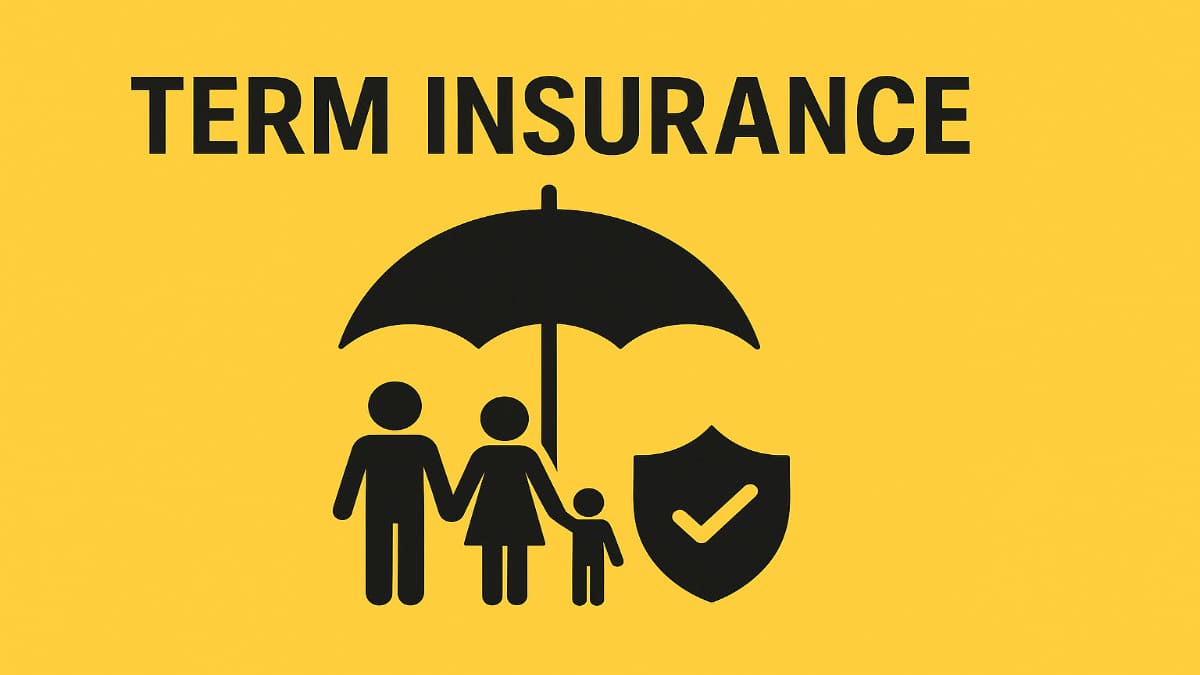
The term insurance landscape in India is evolving rapidly, driven by technological advancements, changing customer needs, and regulatory reforms. What Is a Term Plan and Why You Should Buy One? Here are some key trends shaping the industry in 2025:
1. Digitalization
More insurers are offering online platforms for easy policy purchase, renewal, and claim filing. Apps and websites provide step-by-step guidance, making the process hassle-free. For example, Tata AIA offers online premium calculators and claim registration.
2. Customization
Plans are becoming more flexible, allowing policyholders to tailor their coverage to specific needs. You can choose the sum assured, policy term, and riders based on your financial goals. Some plans, like HDFC Life’s Click 2 Protect Super, offer a return of premium option.
3. Health Focus
With rising healthcare costs, there is an increased emphasis on adding critical illness riders to term plans. Insurers are also offering standalone critical illness policies for comprehensive health coverage, as noted by HDFC Ergo.
4. Affordability
Insurers are competing to offer the lowest premiums, making term insurance more accessible. For instance, Bajaj Allianz Life offers plans starting at Rs. 15/day for Rs. 1 crore cover.
5. Awareness and Adoption
There is growing awareness about the importance of life insurance, leading to higher adoption rates. Government initiatives, such as reducing GST on term insurance, are expected to further boost penetration, according to LiveMint.
6. Innovation in Products
New plans with features like return of premium, increasing sum assured, and flexible payout options are gaining popularity. For example, ICICI Prudential Life offers plans with monthly income or lump sum plus monthly payout options.
What Is a Term Plan and Why You Should Buy One? These trends make term insurance more user-friendly and tailored to modern needs.
Term Insurance in India: A Closer Look
India’s insurance sector is one of the fastest-growing in the world, with term insurance playing a significant role. According to the Swiss Re Institute, India’s life insurance market is expected to grow at a CAGR of 8.9% from 2024 to 2030, driven by increasing awareness, rising disposable incomes, and government initiatives.
Key Statistics
| Metric | Details |
|---|---|
| Protection Gap | India’s protection gap is around 80%, one of the highest globally. |
| Claim Settlement Ratio | Leading insurers like HDFC Life (99.68%) and ICICI Prudential Life (above 99%) have high CSRs. |
| Market Size | The global term insurance market was valued at USD 1,058.08 billion in 2023, with a CAGR of 8.9% from 2024 to 2030 (Grand View Research). |
Popular Term Insurance Providers in India
- HDFC Life: Known for its high claim settlement ratio (99.68%) and innovative plans like Click 2 Protect Super.
- ICICI Prudential Life: Offers plans like iProtect Smart with flexible payout options.
- Max Life Insurance: Provides plans like Smart Term Plan Plus with critical illness riders.
- SBI Life: Known for its E-Shield plan, offering comprehensive protection.
- Bajaj Allianz Life: Offers plans like ProHealth Prime with health benefits.
What Is a Term Plan and Why You Should Buy One? These providers offer a range of plans to suit different needs, making it easier to find the right term insurance.
FAQs
What Is a Term Plan and Why You Should Buy One?
Term insurance is a life insurance policy that provides a death benefit to your nominees if you die during the policy term. It is a pure protection plan with no maturity benefits, making it affordable and essential for financial security.
How Much Term Insurance Do I Need?
A common thumb rule is to have a sum assured of 10-15 times your annual income. However, it depends on your financial obligations, lifestyle, and dependents. For example, if your annual income is Rs. 10 lakhs, aim for a cover of Rs. 1-1.5 crore.
Can I Get My Premiums Back If I Survive the Policy Term?
Yes, if you opt for a return of premium term plan, your premiums are refunded if you outlive the policy term.
Is Term Insurance Tax-Free?
Yes, premiums paid are eligible for deductions under Section 80C (up to Rs. 1.5 lakhs), and the death benefit is tax-free under Section 10(10D).
What Happens If I Stop Paying Premiums?
If you stop paying premiums, your policy will lapse, and you will lose the coverage. However, some plans offer grace periods or revival options.
Can I Add Riders to My Term Plan?
Yes, you can add riders like critical illness cover, accidental death benefit, or waiver of premium to enhance your protection.
How Do I Choose the Right Term Insurance Plan?
Consider factors like sum assured, policy term, premium amount, riders, claim settlement ratio, and customer service. Use online calculators to compare plans.
Is Term Insurance Only for Breadwinners?
No, anyone with financial dependents can benefit from term insurance, including homemakers and self-employed individuals.
Can I Buy Term Insurance If I Have Pre-Existing Medical Conditions?
Yes, but you might have to pay higher premiums or face waiting periods for certain conditions.
What Is the Difference Between Term Insurance and Whole Life Insurance?
Term insurance provides coverage for a fixed period, while whole life insurance covers you for your entire life and includes a savings component.
Conclusion
What Is a Term Plan and Why You Should Buy One? A term plan is more than just an insurance policy; it’s a promise to your loved ones that they will be financially secure even if you are no longer around. With affordable premiums, high coverage, and tax benefits, term insurance is an essential financial tool for every Indian household. By understanding what a term plan is, why it’s important, and how to choose the right one, you can take a significant step towards securing your family’s future.
In 2025, the term insurance landscape in India is evolving with digitalization, customization, and a greater focus on health and affordability. Whether you’re a young professional, a parent, or someone with financial dependents, buying a term plan is one of the wisest decisions you can make. Don’t wait—secure your family’s future today with a term plan that suits your needs.
Disclaimer: Moneyjack.in provides general financial information for educational purposes only. We are not financial advisors. Content is not personalized advice. Consult a qualified professional before making financial decisions. We are not liable for any losses or damages arising from the use of our content. Always conduct your own research.

